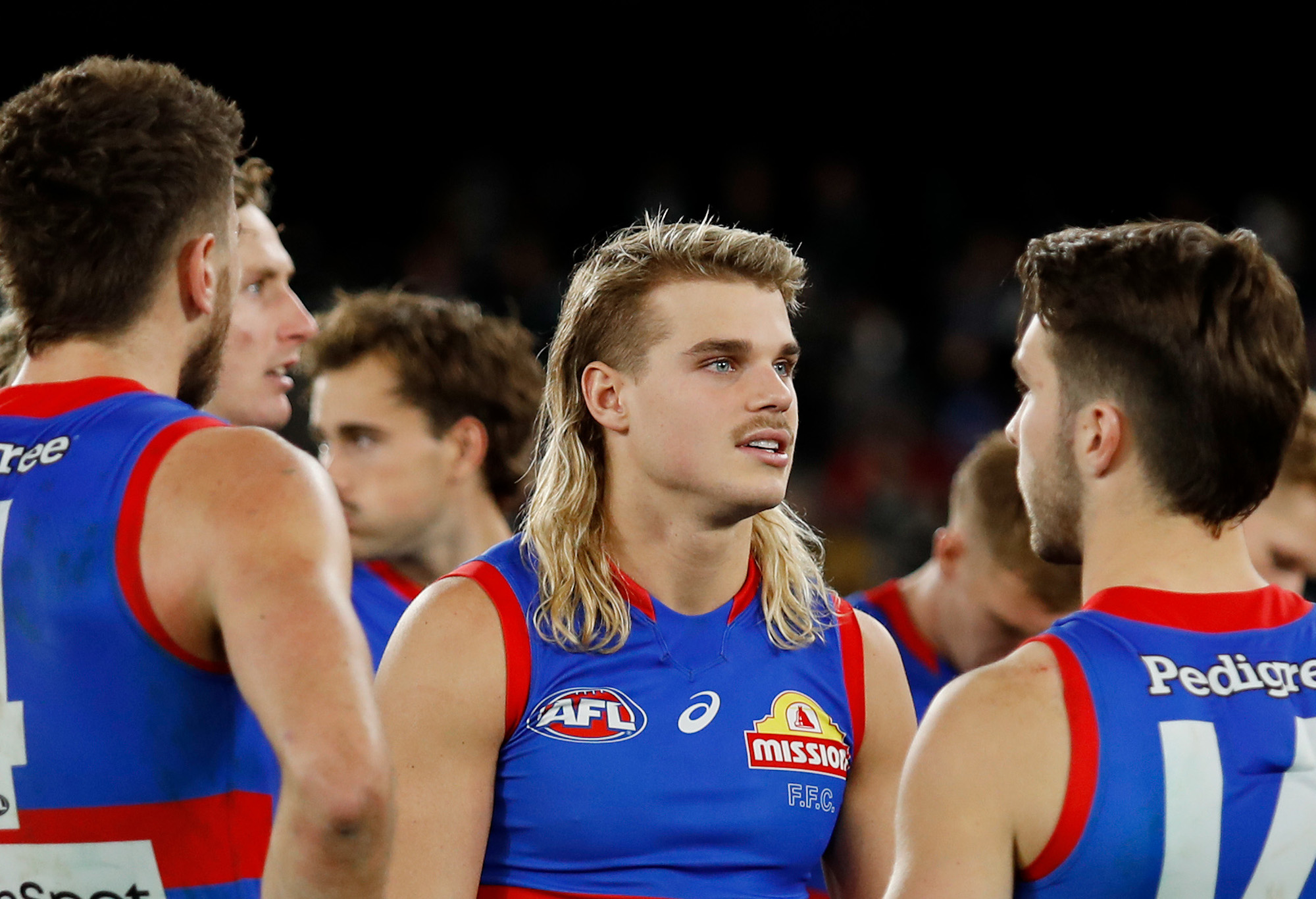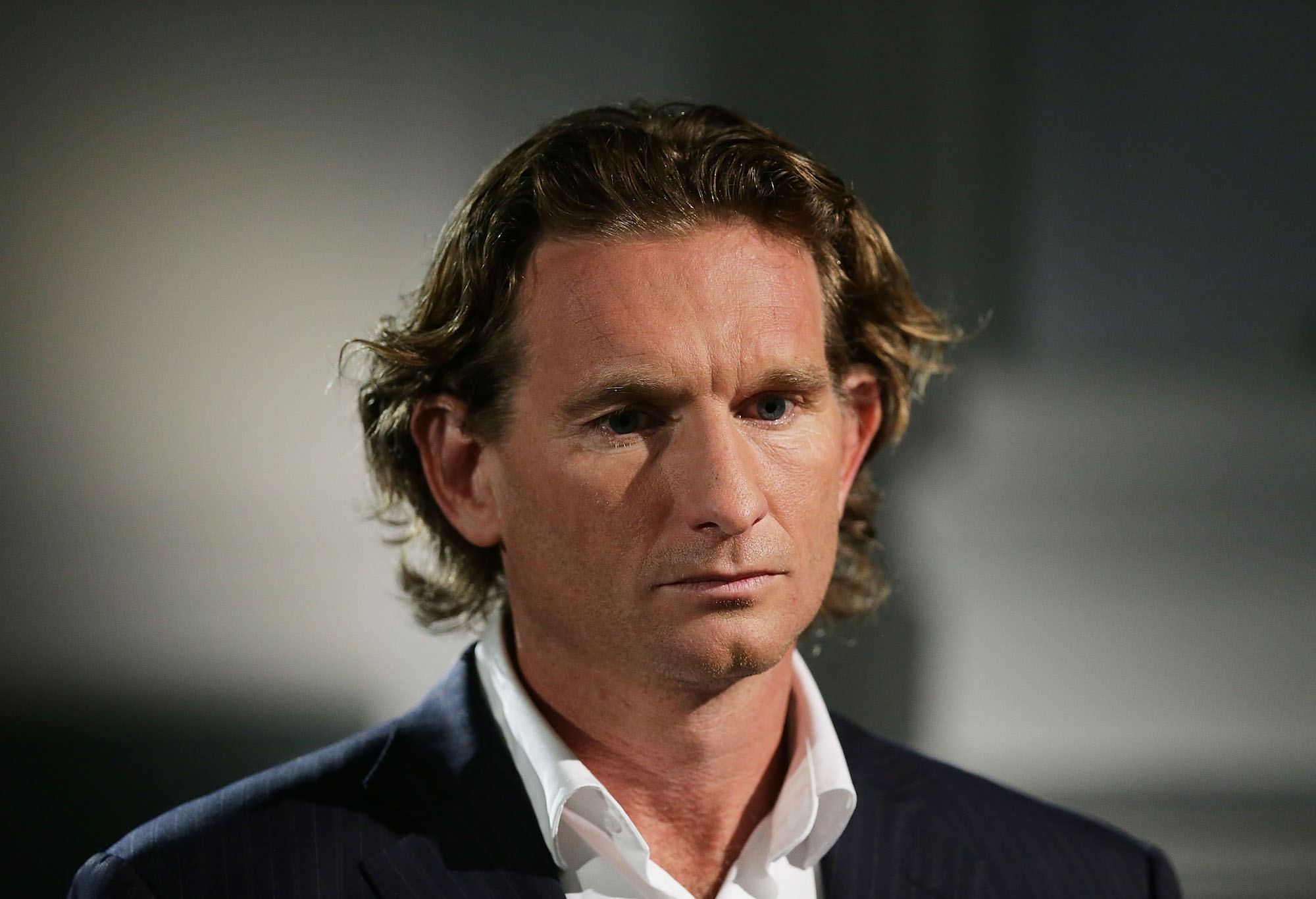'Worst top ten ever': Kane Cornes uses Eagles B&F results to savage them again
"Andrew Gaff - who probably shouldn't be playing AFL football, with all due respect... he finished seventh in their best and fairest."
Join The Roar
Become a member to join in Australia's biggest sporting debate, submit articles, receive updates straight to your inbox and keep up with your favourite teams and authors.
Oops! You must provide an email address to create a Roar account
When using Facebook to create or log in to an account, you need to grant The Roar permission to see your email address
By joining The Roar you agree to our Privacy Policy and Terms & Conditions
Login and get Roaring
Oops! You must provide an email address to create a Roar account
When using Facebook to create or log in to an account, you need to grant The Roar permission to see your email address
On Tuesday night, former Hawthorn great Jordan Lewis threw down a challenge to young Western Bulldog midfielder Bailey Smith.
Having burst onto the scene in 2019 with his explosive play and distinctive blond mullet, Smith became something of a cultural icon among young football fans, collecting over 360,000 Instagram followers and numerous corporate endorsements.
In 2022, however, Smith’s star faltered when footage was released of him holding a packet of white powder at a party, which he later admitted was an illicit substance.
Smith’s sponsors stuck with him, and he remains a hero to his legion of fans, but his continued form slump on-field prompted a stern response from Lewis, who felt the 22-year-old needed to ‘assess all parts of his life’ if he truly wished to achieve footballing immortality.

Bailey Smith. (Photo by Dylan Burns/AFL Photos via Getty Images)
‘First and foremost, your job is to play football at a really high level,’ remarked Lewis, ‘What do you want to be remembered as? Do you want to put your football first or do you want to put your outside life and commitments first?’
In some respects, Lewis is spot on. The average annual AFL player salary is $406,000, a wage that compares favourably to the average Australian income of $63,882. In pursuing the life of a professional sportsperson, Smith and others must accept that intense public scrutiny and abnormal working hours and conditions comes with the territory.
But while we can agree greater remuneration incurs the price of greater responsibility to your employer, there was something troubling about Lewis’ turn of phrase.
From their entry into the AFL system, players are told they must give themselves over totally to their club and the game. A team of coaches, psychologists, nutritionists, doctors, and sports scientists mould them mind, body, and soul for the sole purpose of performing on-field.
When they take off their uniforms, administrators get their turn. They instruct players how to spend their money, what they can and cannot say to the public, where they are allowed to socialise, and how late they are allowed to do so, lest their behaviour bring the club into disrepute.
Some even believe this paternalistic influence has not gone far enough. Kane Cornes has campaigned, with an almost capitalist-protestant-calvinist zeal, to both increase the workloads of players and their club’s control over them for the betterment of the AFL’s on-field product.
The players ‘work-life balance has gone too far’, Cornes argues, and their substantial remuneration should force them to be ‘100 per cent focused on their job’. To achieve this, Cornes believes clubs should reduce the players mandated days off, ban their participation in any reckless leisurely pursuits (which includes basketball, skateboarding, and using a circular saw) and dictate where players can go on holiday.
The dictatorial restrictions Cornes proposes to implement, not to mention those that already exist, would be considered a breach of workplace regulations in any other profession, or a form of coercive control in an intimate relationship.
The long-term consequences of forcing 18–35-year-olds into such a regimented and singularly focused lifestyle is not surprising. Research conducted by the AFL Players’ Association indicates that 37% of former players report some difficulty with their transition into a post-footballing life – mainly due to the loss of routine, difficulty in securing employment through lack of real-world skills, and general uncertainty in ‘what to do next’. Some find a path through the woods; others reach for the bottle and other substances to escape.
The dangers of viewing players not as people, but rather assets to achieve commercial and/or sporting goals, are perhaps more acute while they remain in the system.

Former Essendon coach and superstar James Hird. (Photo by Mark Metcalfe/Getty Images)
In 2012, Essendon’s infamous commitment to do ‘Whatever It Takes’ in pursuit of the club’s 17th premiership ended with their injecting of 34 young men with a cocktail of untested substances to improve their on-field performance. A lost grand final in 2017 resulted in Adelaide handing its players over to a ‘cult like’ consultancy group who subjected them to physical and psychological torture all in the name of building ‘mental resilience’.
And while player welfare programs are expanding, the last 12 months has nevertheless seen allegations of the AFL and their clubs abrogating their duty-of-care to their players on a range of issues, including repeated exposure to concussion and dislocation of First Nations players from their broader social networks.
AFLPA president Paul Marsh was clear the game had failed to protect the basic human rights of its most important stakeholders: “Too often commercial, brand and performance issues have got in the way of prioritising the people involved. I’m sure the AFL would say that people are important, and I don’t doubt that, but I’m not sure decisions are made that are always the best for those people.”
Lewis and Cornes certainly do not condone the examples of abuse listed above, but their cavalier attitude toward player welfare feeds a broader culture in which people are sacrificed in the pursuit of success, and for which no financial sum can ever truly compensate them.
Smith has an obligation to meet the requirements of his employer and do everything he can to be the best player he can be. What he should not do is let others reduce his life and identity solely to that of a footballer, all for the sake of a silver cup.